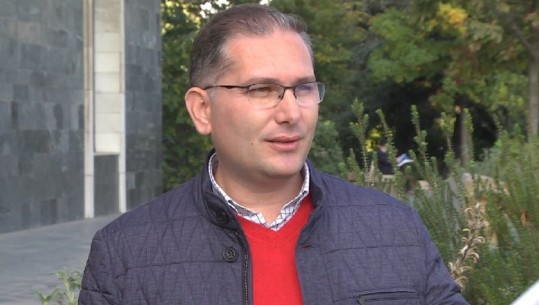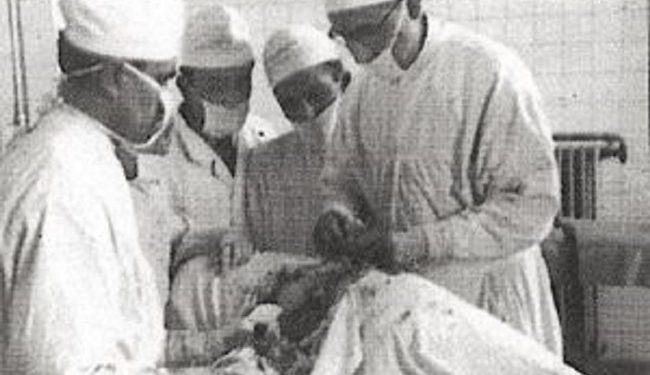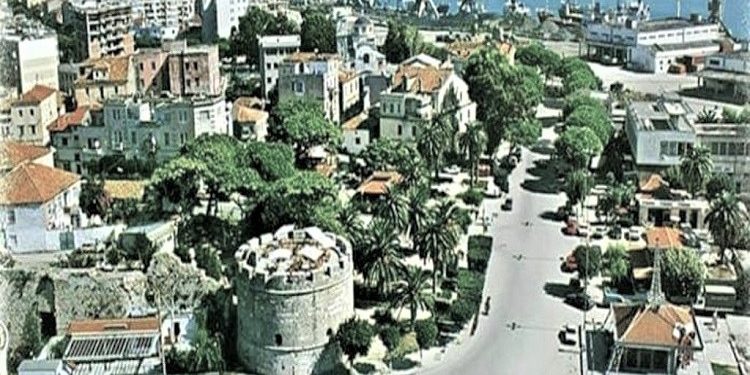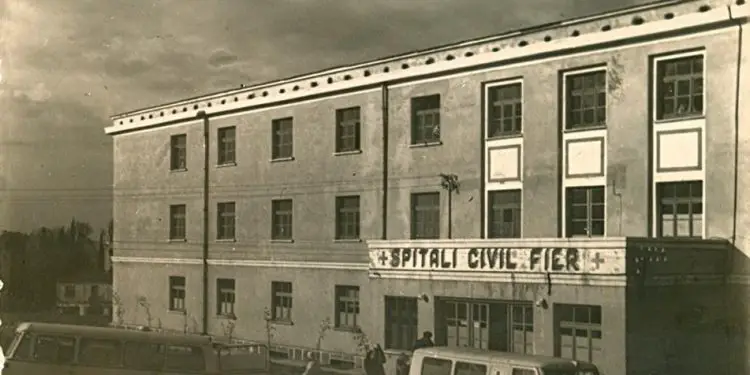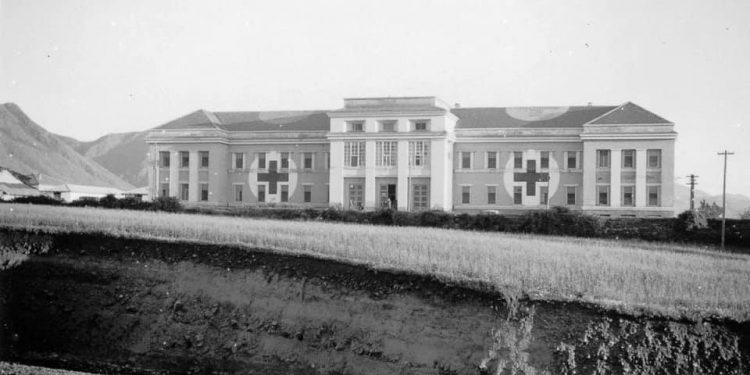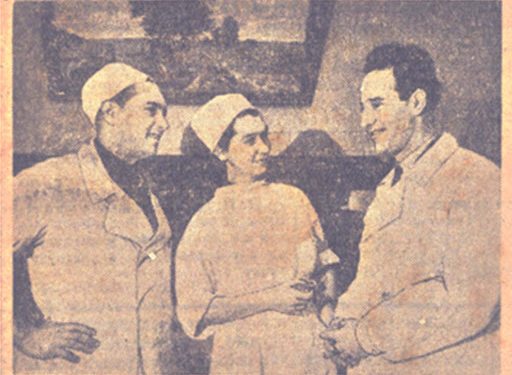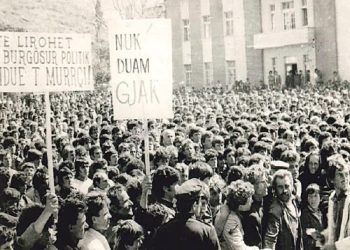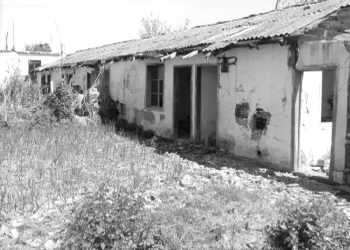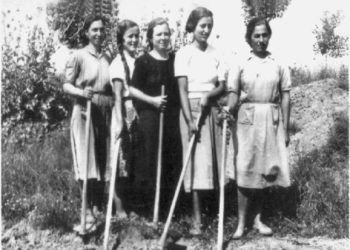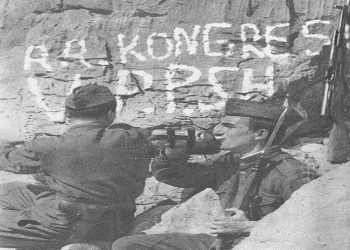By Hasan Bello
Memorie.al / In medicine, what is known as “circumcision” is called “synetllik” in popular language. This tradition stems from monotheistic religions and has been widely practiced for hundreds of years by Jews and Muslims across the globe. This rite was also practiced by Muslim Albanians. It is considered the fulfillment of a religious obligation, related to hygiene and other aspects, which are also valued by medical sciences. Usually, barbers, folk surgeons (xherah), or doctors were involved in this “profession.”
With the establishment of the communist regime and the prohibition of religion in 1967, the circumcision of children was considered a backward custom, and the exercise of this “profession” a criminal act.
Despite these measures, and the persecution by police authorities, State Security (Sigurimi i Shtetit), and the investigative office (hetuesia), parents in many cities and villages did not give up.
But how was this phenomenon viewed by the communist regime? For this, we will refer to a report by the former Deputy Minister of Internal Affairs, Feçor Shehu, addressed to the Secretary of the Central Committee of the Albanian Party of Labor (PPSh), Hysni Kapo; “On some problems arising from criminal proceedings, regarding the performance of circumcisions (synete).”
According to Feçor Shehu, who was the head of the investigative office, during the months of August, September, and October of 1974, the investigative bodies in the districts of Tirana, Durrës, Elbasan, and Mati had pursued 6 criminal cases with 10 defendants, 7 of whom were under arrest, because, in cooperation or individually, they had circumcised a number of people.
From the investigations carried out by the investigative body; “to discover the extent of this crime, the persons involved, and the reasons that allowed it,” it resulted that circumcisions had been performed in the villages of Baldushk, Ndroq, and Shupal, starting from 1971.
Meanwhile, in the districts of Durrës, Elbasan, and Mati, they were carried out during the months of July, August, and September 1974, specifically in the area of Kavajë, Funarë of Elbasan, and Guri i Bardhë of Mati.
The circumcised persons were usually aged 1-4 years, and only one of them was born in 1956. The investigative body expressed concern that the number of circumcised people was not small.
Thus, according to this report, in the Durrës area alone during July-September, 37 people had been circumcised. To relativize the application of this phenomenon, it is emphasized that the majority of parents were cooperativists, with pronounced religious remnants.
But there were also many party members among them. This indicates that this rite was deeply rooted in the psychology of Albanian society.
The overwhelming majority of parents who had their children circumcised were in the villages. The practitioners of this “profession,” according to the report, were elements driven by a sense of profit, parasites who practiced the barber trade, or who had previously been involved in folk surgery (xherahllëk), former nurses, etc.
Thus, to illustrate this, the case of the barber from Durrës, Drago Dhore, was taken as an example. In cooperation with two workers from the Fishing Enterprise (Ndërmarrja e Peshkimit), through the mediation of the cooperative guard of Bago village, on August 27, 1974, he had gone to Bago and Karpen of Kavajë and had circumcised 23 children of eight villagers, receiving a total of 2,310 lek.
This was considered an open challenge to the system and a form of dissidence against the imposition of socialist morality norms.
Another case was that of Q.K., a resident of Tirana, who had once practiced the profession of a folk surgeon (xherah) and who, in July-August 1974, had circumcised 13 children, profiting 400 lek.
The former nurse V.L., who had been convicted four times for committing this crime, immediately after being released from prison, on his way to his village in Korçë, had stopped in the village of Preç in Funarë, Elbasan, and there had circumcised 7 children, profiting 1,000 lek.
Among them was also the son of an assistant judge. This would have also happened with the son of the Council Chairman, had his brother not intervened.
The investigative report emphasizes that; the practitioners of this “profession,” to circumcise children, moved at night, going door-to-door and village-to-village.
This was done to evade the police authorities, the State Security operative in the area, and his collaborators. But there were also cases where they practiced this “profession” in other districts.
Thus acted R.I., from the village of Besh in Tirana, a former kulak (rich peasant), who in September, had gone to Guri i Bardhë in Mat, where he had circumcised 16 children of 9 cooperativist families.
The clandestine practice of circumcisions was done with primitive methods, often causing infections in small children. But there were also cases when they were done by health system employees, inside hospital institutions.
For example, Dh.C., an assistant doctor by profession, at the Central Polyclinic of Tirana, after agreeing with the defendant E.P., a surgeon at hospital no. 2, had circumcised 6 children from the villages of Tirana, 2 of whom were in the hospital, 1 in the polyclinic of neighborhood no. 4, during his duty as the on-call doctor, and 2 in the house of the assistant doctor Dh.C., receiving 1,600 ALL as compensation.
But even more shocking for the investigative body was the other action of the assistant doctor Dh.C., who, exploiting the trust some doctors had in him, had prepared hospitalization reports with fictitious diagnoses.
After being signed by the doctors, they were used to hospitalize some children from the villages of Tirana, under the pretext of a necessary operation. In fact, the real reason for the hospitalization of these children was circumcision.
The investigative body had found similar cases in several districts and hospitals across the country. The leaders of the Ministry of Internal Affairs forgot that some of those who were circumcised needed it for medical reasons. Therefore, prosecuting all doctors who performed these procedures because of their profession was abnormal.
The absurd stance of the investigative office becomes clearer when it specifies the causes that influenced the occurrence of these “consequences.” The use of the concept “consequence” was due to the classification of circumcision as a criminal act. From the investigations, it was concluded that the widespread practice of circumcision stemmed from these reasons:
- Concrete ideological-political work was not developed to the extent that deep convictions were formed even in these specific individuals, to understand the reactionary, religious, anti-scientific, and health-related content of this action.
- There was a lack of continuous control and supervision by the leaders of enterprises, the chairpersons of agricultural cooperatives, and mass organizations, regarding the persons who had their children circumcised.
- The liberal and irresponsible attitude displayed by a number of doctors who signed documents for sick people they did not check.
- The procedure for hospitalizations in hospital no. 2 for minor operations, under the pretext of which circumcisions were performed, was not appropriate, because for such a hospitalization, only one doctor or assistant doctor signed.
- The administration of hospital no. 2 and the Ministry of Health had not exercised the necessary control to cut off the path of such fictitious operations, which in reality masked circumcisions and other irregularities.
These conclusions of Feçor Shehu, in his capacity as Deputy Minister of Internal Affairs and head of the investigative office, are a clear indicator of the extent of the communist regime’s control and repression.
The Albanian citizen was deprived of the fundamental right to practice a religious norm, or a centuries-old tradition, which was entirely a private matter. Memorie.al




